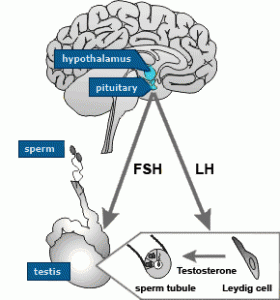- Jul 27, 2015
- 2,196
- 2,678
- AFL Club
- West Coast
- Other Teams
- Manchester United
- Thread starter
- #2,501
We have posted over 2500 comments in this thread and I am still here with my sanity. I would like to try and take this conversation further, I suggest we need to look at this complex and contentious subject from another angle. We all have given our views most having black or white opinions. There have been some amazing contributions from many posters, I am learning a lot through this thread. We have also had our share of boofheads, transgender posts can bring out the worst in some people.
I would like to focus on the actual known sciences, and the medical & surgical procedures an XY Male goes through to transition into an XY Female and if we can determine how any of these procedures relate to performance in sports. I also suggest we look at the role testosterone plays in all of this. Finally and only once we have discussed the science and facts then we should look at the human right and anti discrimination considerations.
Down the track I would like this thread to develop a trans participation policy together, maybe Big Footy can become world leaders in all if this.
The two main areas of transitioning for a transgender person involves, hormone replacement therapy and gender reassignment surgery.
HORMONE REPLACEMENT THERAPY
https://en.m.wikipedia.org/wiki/Hormone_replacement_therapy_(male-to-female)
https://en.m.wikipedia.org/wiki/Cyproterone_acetate
https://en.m.wikipedia.org/wiki/Estrogen_(medication)
Feminizing hormone therapy for transgender women or people; consists of estrogens and anti-androgens
Masculinizing hormone therapy for transgender men or transmasculine people; consists of androgens.
Hormone replacement therapy, typical symptoms (similar to those experienced by menopausal women) include hot flashes, gradual bone-density loss resulting in osteopenia or osteoporosis, and potential weight gain or redistribution of body fat to the hips/chest. Replacement of testosterone in the form of gel, patches, or injections can largely reverse these effects, although breast enlargement has also been reported as a possible side effect of testosterone usage.
GENDER REASSIGNMENT SURGERY
https://en.m.wikipedia.org/wiki/Castration
https://en.m.wikipedia.org/wiki/Sex_reassignment_surgery
The array of medically indicated surgeries differs between trans women (male to female) and trans men (female to male). For trans women, genital reconstruction usually involves the surgical construction of a vagina, by means of penile inversion or the sigmoid colon neovagina technique; or, more recently, non-penile inversion techniques that provide greater resemblance to the genitals of cisgender women. For trans men, genital reconstruction may involve construction of a penis through either phalloplasty or /Metoidioplasty'. For both trans women and trans men, genital surgery may also involve other medically necessary ancillary procedures, such as orchiectomy, penectomy; mastectomy or vaginectomy.
Gender reassignment surgery (GRS) for as XY female involves being surgically castrated a bilateral orchiectomy is performed (both testicles are removed). Asubject of castration who is altered before the onset of puberty will retain a high voice, non-muscular build, and small genitals. He may well be taller than average, as the production of sex hormones in puberty—more specifically, estrogen via aromatization of testosterone—stops long bone growth. The person may not develop pubic hair and will have a small sex drive or none at all.
Castrations after the onset of puberty will typically reduce the sex drive considerably or eliminate it altogether. Castrated people are automatically sterile because the testes(for males) and ovaries (for females) produce sex cells needed for sexual reproduction. Once removed, the subject is infertile. The voice does not change. Some castrated people report mood changes, such as depression or a more serene outlook on life, although this might not be due to chemical changes but instead emotional changes due to the implications of the procedure. Body strength and muscle mass can decrease somewhat. Body hair may sometimes decrease. Castration prevents male pattern baldness if it is done before hair is lost. However, castration will not restore hair growth after hair has already been lost due to male pattern baldness.
Historically, many eunuchs who additionally underwent a penectomy reportedly suffered from urinary incontinence associated with the removal of the penis.
A study conducted at a mental institution in Kansas, where a large number of male inmates had been castrated, found that the eunuchs lived an average of 14 years longer than the uncastrated men. A similar study of 81 historical eunuchs in Korea's royal court found a 14 to 19 year increase in lifespan compared to intact men of similar socioeconomic background; these eunuchs had a rate of over 3%
I would like to focus on the actual known sciences, and the medical & surgical procedures an XY Male goes through to transition into an XY Female and if we can determine how any of these procedures relate to performance in sports. I also suggest we look at the role testosterone plays in all of this. Finally and only once we have discussed the science and facts then we should look at the human right and anti discrimination considerations.
Down the track I would like this thread to develop a trans participation policy together, maybe Big Footy can become world leaders in all if this.
The two main areas of transitioning for a transgender person involves, hormone replacement therapy and gender reassignment surgery.
HORMONE REPLACEMENT THERAPY
https://en.m.wikipedia.org/wiki/Hormone_replacement_therapy_(male-to-female)
https://en.m.wikipedia.org/wiki/Cyproterone_acetate
https://en.m.wikipedia.org/wiki/Estrogen_(medication)
Feminizing hormone therapy for transgender women or people; consists of estrogens and anti-androgens
Masculinizing hormone therapy for transgender men or transmasculine people; consists of androgens.
Hormone replacement therapy, typical symptoms (similar to those experienced by menopausal women) include hot flashes, gradual bone-density loss resulting in osteopenia or osteoporosis, and potential weight gain or redistribution of body fat to the hips/chest. Replacement of testosterone in the form of gel, patches, or injections can largely reverse these effects, although breast enlargement has also been reported as a possible side effect of testosterone usage.
GENDER REASSIGNMENT SURGERY
https://en.m.wikipedia.org/wiki/Castration
https://en.m.wikipedia.org/wiki/Sex_reassignment_surgery
The array of medically indicated surgeries differs between trans women (male to female) and trans men (female to male). For trans women, genital reconstruction usually involves the surgical construction of a vagina, by means of penile inversion or the sigmoid colon neovagina technique; or, more recently, non-penile inversion techniques that provide greater resemblance to the genitals of cisgender women. For trans men, genital reconstruction may involve construction of a penis through either phalloplasty or /Metoidioplasty'. For both trans women and trans men, genital surgery may also involve other medically necessary ancillary procedures, such as orchiectomy, penectomy; mastectomy or vaginectomy.
Gender reassignment surgery (GRS) for as XY female involves being surgically castrated a bilateral orchiectomy is performed (both testicles are removed). Asubject of castration who is altered before the onset of puberty will retain a high voice, non-muscular build, and small genitals. He may well be taller than average, as the production of sex hormones in puberty—more specifically, estrogen via aromatization of testosterone—stops long bone growth. The person may not develop pubic hair and will have a small sex drive or none at all.
Castrations after the onset of puberty will typically reduce the sex drive considerably or eliminate it altogether. Castrated people are automatically sterile because the testes(for males) and ovaries (for females) produce sex cells needed for sexual reproduction. Once removed, the subject is infertile. The voice does not change. Some castrated people report mood changes, such as depression or a more serene outlook on life, although this might not be due to chemical changes but instead emotional changes due to the implications of the procedure. Body strength and muscle mass can decrease somewhat. Body hair may sometimes decrease. Castration prevents male pattern baldness if it is done before hair is lost. However, castration will not restore hair growth after hair has already been lost due to male pattern baldness.
Historically, many eunuchs who additionally underwent a penectomy reportedly suffered from urinary incontinence associated with the removal of the penis.
A study conducted at a mental institution in Kansas, where a large number of male inmates had been castrated, found that the eunuchs lived an average of 14 years longer than the uncastrated men. A similar study of 81 historical eunuchs in Korea's royal court found a 14 to 19 year increase in lifespan compared to intact men of similar socioeconomic background; these eunuchs had a rate of over 3%
Last edited:










